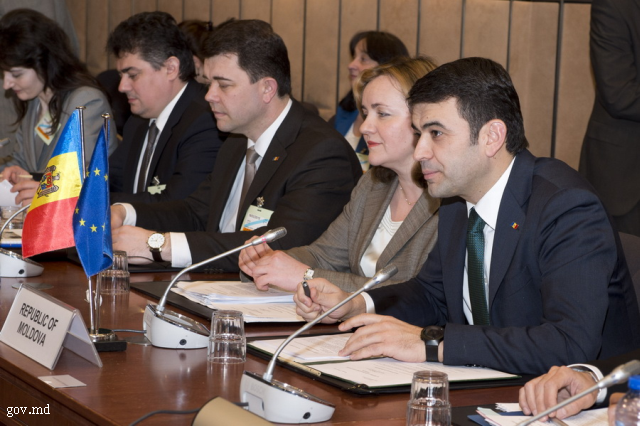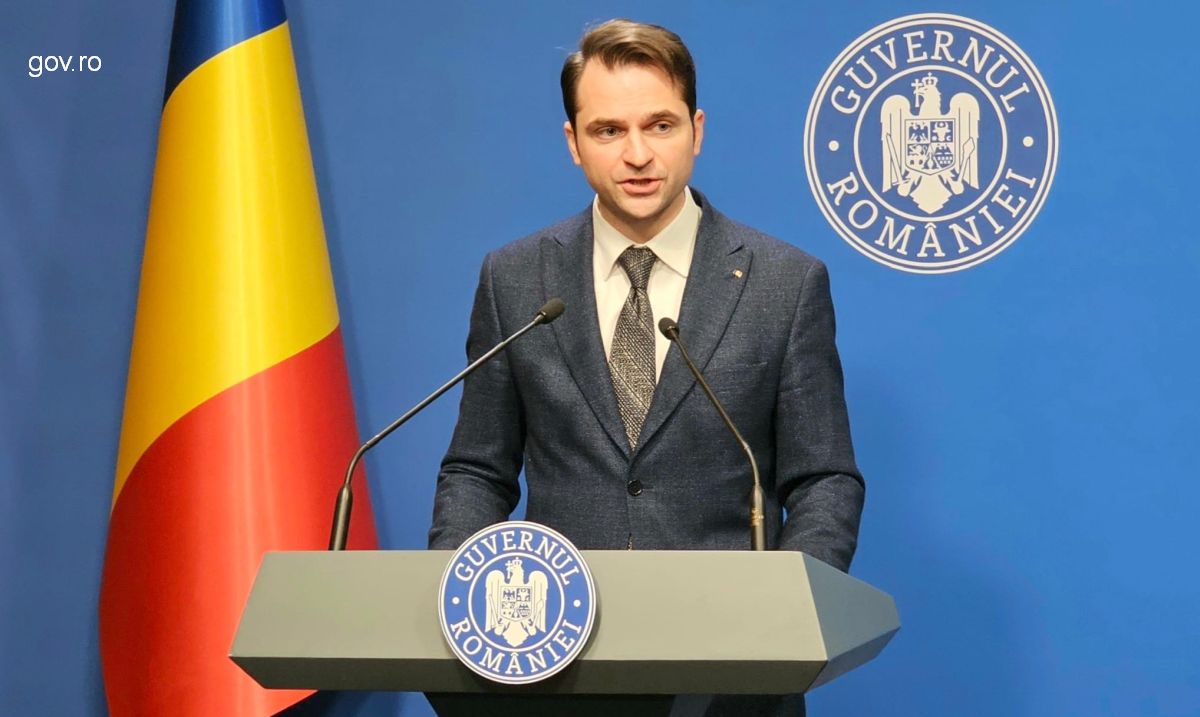The Republic of Moldova in Europe
A delegation headed by the new Prime Minister of the Republic of Moldova Chiril Gaburici held talks with EU and NATO officials in Brussels

Bogdan Matei, 17.03.2015, 14:16
The coming to power of a new minority government in Chisinau in February this year, also backed by the Pro-Russian communist MPs, has cast doubt on the European commitment of the cabinet led by Chiril Gaburici. The Moldovan official will have to prove that his team is able to carry on the progress made by his predecessors, pro-Western Vlad Filat and Iurie Leanca. The reforms the two prime ministers supported allowed for the conclusion of association and free-trade accords between Chisinau and Brussels concurrently fueling hopes that Moldova could join the EU in 2020.
On Monday, the new Prime Minister flew to Brussels for the second time in less than a month to attend the inaugural proceedings of the EU-Moldova Association Council. Romanian Foreign Minister, Bogdan Aurescu again pleaded for the Union to give different responses to each of its six ex-Soviet partners according to the concrete headway they made. According to the Romanian official, the Republic of Moldova has made the most significant progress in the EU’s Eastern Partnership.
“What’s notable is the very positive impact the conclusion of the free-trade agreement has had upon the Republic’s trade. Figures are very interesting in this respect. Changes have already been felt in trade exchanges and the Moldovan trade has been mainly channeled to the European market. Exports to EU countries are on the rise, the most significant being trade exchanges with Romania, according to data.”
Aurescu again urged all the EU members to ratify association and free trade agreements with Chisinau as well as with the other two ex-Soviet countries, which opted for EU accession, that is Ukraine and Georgia. Romania was the first to have ratified the documents and the agreement on the political scene is unanimous; both the Social-Democrat government and the center-right opposition have reached a consensus in this respect, namely on the Republic of Moldova’s joining the EU. MEP Siegfried Muresan told this to RRI correspondent in Brussels.
“The Russian Federation wants countries to be weak and vulnerable in order to blackmail and control them better. The same was with Ukraine, whose people was deceived into pinning their hopes on Russian aid, which most of the time proved to be conditioned and short-term; Russia could cease that aid any time it wanted. The EU has contributed to the development of countries in Central and Eastern Europe. I believe that’s the fundamental difference. What’s important now is to explain to the people in the Republic of Moldova, and the Russian minority, the concrete benefits of EU accession.”
During his first meeting with Prime Minister Gaburici, NATO secretary general Jens Stoltenberg pledged support for the modernization of the Republic of Moldova’s armed forces.






























